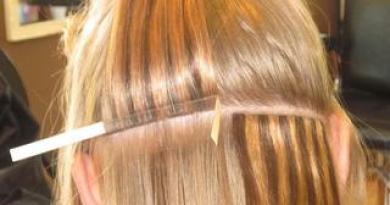Blinking is one of the unconditioned reflexes that appears in a person from the first days of life and accompanies up to last day. Blinking is a natural process, but caring parents should be wary if their child blinks his eyes frequently. Even if there are no other alarming symptoms, this is a significant cause for concern, since this condition is clearly abnormal.
Before starting treatment, it is necessary to determine why the child began to blink his eyes frequently? To do this, you must visit an ophthalmologist.
After diagnosis, the doctor will determine one of three options:
- decreased visual acuity;
- foreign body in the eye.
In the first case, we are talking about drying out the eye, which causes a feeling of acute discomfort and speeds up the natural process of blinking. However, the tear fluid is still not enough, and the doctor prescribes the use of moisturizing eye drops.
If we talk about the so-called “vision loss,” the clinical picture is quite serious. The fact is that the baby does not see objects clearly, so he tries to blink and “sharpen,” so to speak. It will still not be possible to eliminate the problem in this way, but visual acuity will be even worse due to increased visual load.
As for the foreign body, even if it gets into one, both eyes will blink frequently. Only after removing the foreign object can you feel noticeable relief, restore visual acuity, and prevent all possible complications in the optical system.
Neurologist's opinion
If a child blinks his eyes very often, then in addition to an ophthalmologist, it is imperative to visit a neurologist, who can also clearly determine the cause of this anomaly. Why? What if the child has a nervous tic or the consequences of severe fright? All this is as real as one of the alarming symptoms of frequent blinking.
 The main causes of blinking from the field of neurology:
The main causes of blinking from the field of neurology:
- nervous tic;
- complications after traumatic brain injury;
- genetic predisposition;
- severe emotional shock, shock;
- stress, childhood fears, adaptation period in a new team;
- childhood phobias, conflicts in the family (social factor);
- long-term use of certain medications.
Parents should remember: if a child begins to blink his eyes frequently due to nervous disorders, or against the background of emotional instability, then in addition to this symptom there is also poor appetite, disruption of the daily routine and sleep phase, chronic insomnia, increased irritability, nervousness and even aggression at times. In such clinical pictures, consultation with a neurologist should follow immediately, as well as further conservative treatment as indicated.
Effective treatment
If small child often blinks his eyes, then, for example, such an authoritative specialist as Dr. Komarovsky recommends looking for a problem in the family, that is, the first step is to eliminate the social factor. It is necessary to determine what preceded this anomaly and, of course, show the baby to specialized specialists. If you ignore the problem, referring it to childish pampering and posing, then you can aggravate the course of an acute pathological process, which will lead to radical complications in the child’s body. 
When a small child blinks his eyes frequently, treatment is usually conservative and includes a favorable psychological environment in the family. Parents should not irritate their child, much less consciously focus his attention on the problem, otherwise the baby will experience an inferiority complex and try to forcefully keep the tic. This is harmful, since the visual load on the organs of vision will only increase and can worsen the course of the pathological process in the child’s body. If this abnormal condition does not disappear on its own within three days, it’s time to take all the therapeutic measures recommended by a qualified specialist.
First of all, it is advisable to review the daily menu, make adjustments to it in the form of food products with a high content of vitamins A and E. It would also not hurt to take a course of Aevit multivitamins, which predominate in the over-the-counter market.
Physiological methods of treatment are an excellent addition to conservative therapy, including reflexology, massage, therapeutic exercises for the eyes, and baths based on decoctions of soothing herbs. Such procedures must be performed regularly, and within a week the problem will be forgotten.
Important! The main thing is that if a child begins to blink his eyes frequently, he must rule out serious neurological diseases. And for this, a trip to the doctor is required!
If there is a serious disease, the symptom of which is frequent blinking of the eyelids, then you certainly cannot do without the additional use of certain medications strictly according to indications. The main treatment is prescribed by the doctor, based on the characteristics of the disease and the specifics of the child’s body, indicates the daily doses, and stipulates the duration of intensive therapy.
If, at the end of the test, the positive dynamics of the disease are weakly expressed or completely absent, then repeated diagnostics will follow with the prescription of potent medications, and additional hospitalization of the small patient cannot be ruled out.
Blinking is a natural process for the eyes that helps relieve eye fatigue, moisturize the cornea and remove dust trapped in them. Parents cannot help but notice that the child has begun to blink and squint his eyes more often. Most cases occur in children over four years of age. Some parents do not attach any importance to this and think that the child is just making faces and playing around. Others, on the contrary, believe that blinking is just a habit that the child must be weaned from by prohibiting him from repeating it again and again.
This reaction of parents to frequent blinking and squeezing their eyes shut is fundamentally wrong and can harm the child and aggravate the existing problem. Those children who are forbidden to do this will try with all their efforts to delay the natural desire of the eyes to blink so that their parents will stop swearing. Sooner or later, this will lead to the child becoming nervous and his eyes becoming even more tense. Such children then cannot control eye movements, and they become chronic.
 If you notice that your child is blinking and squinting much more often than usual, you need to immediately find out the reason. Perhaps the eyes are simply tired, or dust or dirt has gotten into them, which needs to be washed off by moisturizing the eyes. But if this is not the case, then most likely the child has serious eye problems that require immediate consultation with a specialist:
If you notice that your child is blinking and squinting much more often than usual, you need to immediately find out the reason. Perhaps the eyes are simply tired, or dust or dirt has gotten into them, which needs to be washed off by moisturizing the eyes. But if this is not the case, then most likely the child has serious eye problems that require immediate consultation with a specialist:
- If a child blinks frequently and squeezes his eyelids tightly, an ophthalmologist should be consulted. The specialist will examine the eyes; perhaps the child’s corneas are dry and there is a need to administer a course of special moisturizing drops. In order to prevent the corneas from drying out, it is necessary to protect the child from prolonged viewing of TV and the computer so that the eyes do not become too strained;
- When a child not only blinks frequently, but also squints, especially when looking somewhere into the distance, it is necessary to visit an ophthalmologist. The child may have vision problems and begin to develop myopia. A timely contact with a specialist will help prevent the problem from starting and determine the correct path to its elimination;
- Also very often, blinking and squinting your eyes is a psychological nuisance. In such cases, consultation with a neurologist is necessary. If, in addition to blinking and closing his eyes, a child's cheeks twitch, he periodically shudders - he may have a nervous tic. In this case, the child squints his eyes involuntarily. Do not think that such a problem does not require treatment and consultation with a doctor. Perhaps the child’s nervous system has been damaged due to heavy stress, or blinking is a consequence of a traumatic brain injury. Nervous tics and frequent eye blinking can also be inherited. This may also be a consequence of adaptation in a team, for example, in a kindergarten or school. Children endure the adaptation period to an unfamiliar society very tensely and difficultly;
- Unpleasant sensations in the eyes, causing the child to blink rapidly, may signal the onset of a disease such as conjunctivitis. The first stages of the development of the disease may not be accompanied by visible signs of inflammatory processes. But in the future, the eyes will become red, swollen, sore and itchy. It is necessary to take the child to a specialist who will tell you how to properly treat conjunctivitis and prescribe the necessary medications. In no case should you self-medicate so as not to harm the child;
- The reasons for frequent blinking in children also include moving, which becomes stressful, fear of something or someone (perhaps the parents constantly make trouble in the presence of the child, take it out on him, or in the kindergarten or school there is a very strict teacher or educator who the child is afraid);
- Also, the child’s long-term treatment with medications, which affected disturbances in the endocrine or cardiac system, can also provoke rapid eye blinking. If you have already ruled out all other possible causes of frequent blinking and squinting of the eyes, then you should definitely visit an endocrinologist.
 If your child has a nervous tic, then most likely it will not be permanent. The main thing is to properly help the child get rid of this problem, and not let things take their course:
If your child has a nervous tic, then most likely it will not be permanent. The main thing is to properly help the child get rid of this problem, and not let things take their course:
- If you visit a doctor in time, he will give the necessary recommendations that will help you save your child from frequent blinking and squinting;
- You should not scold your child so that he stops blinking and squinting frequently;
- Also try not to talk about problems that have arisen in front of your child, so that he does not worry and the attacks do not intensify and become more frequent.
Try to identify the reasons that could provoke the appearance of a nervous tic in the child, and protect him from this. Perhaps your parenting method is not entirely correct and needs to be reconsidered. It is also worth adjusting the sleep, nutrition, and physical and mental stress patterns to the child so that he does not overexert himself. Healthy image life is the key to success in the fight against frequent eye blinking. Limit your child's TV viewing and control their sleep and rest schedule. Walk with your child in the fresh air more often, entice him into outdoor games with peers.
If blinking and squinting of the eyes began not so long ago, then take the child to an ophthalmologist and neurologist. Doctors will look at your eyes and determine if there are injuries, dry corneas, or if there is something in your eyes. If a child’s corneas are dry, then in addition to the moisturizing drops that a specialist will prescribe, it is necessary to humidify the room at home and give the child the vitamins the body needs.
Frequent blinking can be a symptom of serious diseases that must be treated in time so that the child does not lose vision in the future. An advanced disease can provoke attacks, so treatment must be started immediately. If you start taking medications prescribed by a specialist on time, you can get rid of frequent blinking and squinting of your eyes.
The specialist may also recommend massage, reflexology and special gymnastics to the child. This physical therapy, combined with eye baths containing various medicinal and soothing herbs, will help your child get rid of frequent blinking and squinting.
Also read articles on its website on the topic of children's health: and.
You need to understand that even when treating a child with the necessary medications, this may not be enough. It is necessary to take care of favorable conditions in which the child will feel as comfortable as possible. Be more gentle and attentive to your child, give him as much parental love and care as possible. This will help him get rid of severe tension and cope with the problem of frequent blinking and squinting of the eyes as quickly as possible. Never swear in front of your child or solve your adult problems. Children understand everything and experience all problems much more seriously than their parents. The child does not need unnecessary tension and worry. Try to protect him from this as much as possible.
If your child begins to blink frequently, then this is a serious reason to think about his health. The causes of this disease may be different, correct definition which will help to quickly and effectively cure this disease.
____________________________
If your child blinks his eyes frequently, what does it mean?

Blinking is an unconscious reflexive movement that has been inherent in us since birth. This physiological process allows the eyes to moisturize and remove dust from the surface. When a person's eyes are tired or a foreign object gets on the surface of the cornea, blinking becomes more frequent.
Frequent blinking in a child cannot but worry parents. When they notice such signals, they immediately try to find out the reason. It will be very good if the reason that the child blinks his eyes is ordinary eye fatigue or dust that can be washed away by moisturizing the eye. But there are also more serious and advanced problems in a blinking child, and they require urgent consultation with a neurologist or ophthalmologist.
Reason 1. Ophthalmological
When a child aged 4-12 years suddenly begins to blink his eyes frequently and at the same time squeezes his eyelids tightly, then first visit an ophthalmologist. After the examination, he will draw conclusions whether his cornea is dry. If you are too dry, he will prescribe moisturizing drops. You will also need to pay special attention your child's daily routine. Maybe his eyes get a lot of stress during the day. He watches TV or sits at the computer for a long time.
Reason 2. Psychological
In most cases, why a child often blinks his eyes is a psychological problem. This is a nervous tic, twitching of the cheeks, shuddering. All such problems occur in an involuntary contraction of the muscles of the limbs or face. With such problems, parents should contact a neurologist.

It’s still not worth ignoring seemingly insignificant nervous tics that quickly passed. They may indicate that your child's nervous system is overloaded. It also happens that children begin to blink frequently due to a concussion or traumatic brain injury. The reason why a child often blinks his eyes may be heredity; if someone in your family suffered from a nervous tic, then the likelihood that your child will inherit this feature is very high. Many children experience the appearance of nervous tics during adaptation to school or preschool educational institutions. After all, not every child can easily get used to a change in his usual environment and moves to a new team. Most children experience extreme emotional stress during this period.
Other reasons why a child began to blink his eyes frequently:
- Strict teacher or educator;
- clarification of disagreements by parents in front of the child;
- moving to a new place of residence;
- fear;
- raising a child too harshly, etc.
How to treat a child
In most of all cases, children's nervous tics are temporary and, if parents treat their children correctly, disappear quite quickly.
How should parents treat a baby who blinks frequently? First, you shouldn't completely ignore the problem and expect the problem to go away on its own. Seeking timely help from specialists can bring the day of getting rid of this obsessive blinking significantly closer. Also, there is no need to stop if the child blinks his eyes and constantly watch him making comments. By such actions you will only aggravate the emotional stress in the baby, and any involuntary movement of the eyelids will turn into chronic, which will not be subject to volitional control.
Try first to identify and also eliminate all provoking factors for a nervous tic in a child. Analyze your relationships in your family and your approach to parenting. If necessary, review your child's sleep schedule, nutrition, and mental and physical stress. After all, a healthy microclimate, proper rest, feeding the child and pine baths are key components in the fight against frequent eye blinking.
When does your child need medical help?

When a child has been blinking his eyes recently, you can first make a visit to an ophthalmologist, and then, if there are no deviations, to a neurologist. The optometrist will examine the eye and check for injuries, dryness, abnormal development, and possible foreign objects in the cornea of the eye. When there is a foreign body in one eye, both eyes can blink. The ophthalmologist will determine whether there is a paroxysmal manifestation. If blepharospasm and other pathological disease are detected, there is a danger of losing vision.
If the child’s illness begins to worsen, this may be accompanied by an attack, so you should not hesitate and undergo appropriate treatment.
In the best case, pine baths, vitamins, electrophoresis, drugs that increase blood circulation and sedatives will be prescribed. By taking prescribed medications, blinking may disappear completely. The manifestation of teak worsens and intensifies in autumn and spring.
Before you start drug treatment, create the best and best psychological microclimate for your child’s recovery. Try psychological methods, such as auto-training or breathing exercises.
Video
The blinking frequency of a healthy body’s eyes is determined by the need to moisturize the eye membrane and supply it with oxygen.
But sometimes a person can blink too often, and this phenomenon is more common in children.
It may indicate both neurological disorders and problems with the eyes themselves.
In this article we will examine this issue in detail and offer tips to help you get rid of frequent blinking.
Reasons
Frequent blinking has two types of causes: ophthalmological and neurological. First, let's deal with the first ones.
Ophthalmic
Blinking may become more frequent if the usual frequency is not enough to maintain comfortable functioning of the visual organs.
The reason for this may be:
- Dehydration. If the membrane of the eye dries out too quickly, then to moisturize it, you have to blink more often.
- Decreased visual acuity. If you do not wear glasses and do not make corrections in case of such a violation, then the eyes will have to strain a lot to examine objects, and when overstrained, the eyes need oxygen and hydration more than in a normal state.
- One of the main reasons for dry eyes is working at the computer for a long time. However, during work the eye blinks less often than usual, but immediately after its completion it restores the water balance by blinking more frequently.
- Getting a foreign body into the eyes, especially in cases where it goes deep into the conjunctival sac.
- Conjunctivitis. Swelling of the tissues around the eye leads to irritation, which he tries to get rid of by blinking more frequently.
- Other infectious diseases of the eye, such as blepharitis.
Neurological

There are a number of neurological and psychological disorders that provoke rapid blinking even with completely healthy eyes.
This is due to the fact that blinking is an unconscious process that depends on the functioning of the entire nervous system.
Therefore, problems with its functioning can affect the functioning of the visual organs. Among these problems are:
- Traumatic brain injuries.
- Experiences, stressful situations. In children they can be caused unnecessarily strict upbringing, difficulties in communicating with peers, problems with studies, etc.
- Load on nervous system due to colds, especially in children under 6-7 years of age.
- The use of certain drugs that stimulate the nervous system, for example, nootropics.
- Predisposition to epileptic seizures.
- Parkinson's disease.
It is worth noting that blinking with neurological problems most often accompanies general nervous tic, which manifests itself in twitching of the facial muscles and limbs.
Such tics may be a syndrome of damage to the brain or nerve canals, or may be the result of a genetic predisposition. They occur especially often in children with attention deficit disorder.
They can be provoked by vitamin deficiency, since with a lack of certain substances (zinc, magnesium), the nervous system begins to work incorrectly.
Symptoms
Blinking, which is a symptom of any pathology, is different in that it does not last for a few seconds or minutes, but haunts the child for days and months, becoming habitual for him.
Its frequency changes from optimally once every few seconds to once every two seconds, and in some cases it can occur more often.
This disruption of the eyelids is observed for the longest time in neurological disorders, but problems such as a deeply embedded foreign body or decreased visual acuity without prescription of glasses can be accompanied by long-term blinking.
You can distinguish psychological causes from ophthalmological ones by the fact that in the first case, not only the muscles of the eye will twitch, but also the face, and sometimes even the arms and legs.

Only one eye can blink. This indicates damage to the nerve canals leading to the eye muscles, as well as problems with the area of the brain that is responsible for the functioning of one of the hemispheres.
Ophthalmological causes, such as foreign objects, infection and inflammation, remain in this case relevant.
For a complete diagnosis, you need to visit an ophthalmologist and neurologist. The ophthalmologist will check the eyes for infections, foreign bodies, and dehydration. He will also check the child's vision to see if it has decreased in acuity.
If none of the diagnoses are confirmed, then this will most likely mean the presence of neurological problems, and you will have to go to a neurologist. It wouldn’t hurt to visit a psychotherapist who will check your child for stress.
Caring for children's eyes is especially sensitive. The following selection of articles will help preserve your child’s vision:
Treatment

Therapy depends on the identified cause. If blinking occurs due to fatigue, then it is necessary to give the eyes more rest.
If the cause is dehydration of the membrane, then you need to reduce the time the child spends at the computer and in front of the TV and apply moisturizing drops to the eyes (artificial tears, Oftagel, Systane-ultra).
Avoid consumption of caffeinated drinks. Infectious diseases are treated with antiviral and antibacterial drops.
Eliminating neurological problems involves a doctor prescribing pills that normalize the functioning of the nervous system. But drug treatment in such cases should be a last resort.
Most often, regular auto-training is sufficient. Calm your child down, help him cope with stress, take him to to a good psychologist, reduce housework demands.
Will help you cope with blinking folk remedies. Recipe for a soothing infusion: 2 tablespoons of mint, a tablespoon of valerian and three tablespoons of chamomile are mixed in a glass, poured with boiling water for half an hour and drunk twice a day.
You can make a pillow from herbs; it will provide your child with healthy sleep and a peaceful awakening. A decoction of black tea will help to rinse the eye if foreign bodies get in: you need to brew it in a thick consistency, let it cool and apply it to the damaged eye using a cotton swab.
Preventive measures include strengthening the immune system, preventing stressful situations, reducing time spent working at the computer, proper daily routine, and refraining from consuming drugs that negatively affect the nervous system.
Prevent your child's eyes from becoming dehydrated, and at the first sign of dryness, give him a rest and drips of moisturizers.
Results

Frequent eye blinking in children is caused by problems with the eyes and nervous system. Ophthalmological problems are represented by eye dehydration, overstrain, conjunctivitis, and infectious diseases.
Stress, consumption of drugs that excite the nervous system, damage to nerve endings, excessive mental stress on the body - these factors can also cause increased blinking.
As a rule, to eliminate such a problem, you do not need the use of medications or medical intervention; just a proper daily routine and increased rest time, as well as getting rid of conditions that provoke stress, are enough.
Why do we blink? This is a normal reflex that protects the eyes from dryness, bright light, and foreign objects. During the blinking process, tears cleanse and nourish the surface of the eye. Newborns blink only 2 times per minute, teenagers and adults blink about 14-17 times. What does it mean if a child blinks his eyes often? We will consider the causes and consequences of this phenomenon.
There may be situations when parents notice a peculiarity in their child associated with frequent blinking. It is necessary to try to help the child and find out if he is experiencing any discomfort, and also find out the reasons for this manifestation.
There are quite a few factors that lead to the appearance of rapid blinking. Here are some of them:
- changes in temperature and humidity in the room;
- getting a foreign object into the eye;
- response to pain;
- harsh light;
- Even during a simple conversation such manifestations are observed.
In the vast majority of cases, the problem can be resolved with simple medical procedures. However, if the situation does not improve, drug treatment is also possible. Let's look at the main causes of excessive blinking in children.
Teak
These are fast, similar movements. They are involuntary and uncontrollable. Some children experience facial spasms, which may include excessive eye blinking. This condition is more common in childhood, and characteristic physiological factors include anxiety or fear, side effects medicines. You need to consult a specialist to resolve the problem.
Read also:
Myopia
In this case, children can only see objects that are nearby. It was noted that they complain of lacrimation, headaches, blurred vision, including excessive blinking. A thorough eye examination is always recommended in such circumstances to ensure timely initiation of appropriate therapy.
Blepharitis
Another cause of frequent blinking is blepharitis, an infection caused by bacteria and covering a large group of diseases. Its main manifestations are swelling, itching of the eyelids in addition to irritation and redness. You need to wash your face more often, and a warm compress will help with early treatment of blepharitis, but pharmacological treatment is not excluded.
Eye strain

The most common cause of excessive blinking is eye strain. TV, computer and other gadgets in a child’s life can cause this condition. Other problems that usually come along with eye strain include redness, watery eyes, headaches, and in severe cases, even blurred vision. It is important that parents supervise their children and take steps to prevent visual stress.
Dry eyes
Children living in areas or regions that are dry or arid may suffer from excessive blinking. In this case, you need to moisturize the surface of the eyes. Drops are essential in this situation, and indoor humidifiers help prevent dry eyes.
Allergies and Tourette's syndrome
An allergic reaction may also contribute to excessive blinking. In most of these cases, blinking is accompanied by irritation, itching and redness of the eyelids.
One cause of excessive blinking may be Tourette's syndrome, which usually appears in children between 3 and 10 years of age. In most cases, it is mild and does not require drug therapy. But examination and consultation with a specialist are necessary.
When is a doctor needed?
You should always consult a doctor if your child blinks frequently to determine the reasons for this eye behavior and prescribe the necessary treatment. This may not be a serious condition, but the ophthalmologist will suggest ways to solve eye problems.
Cases when a child frequently blinks his eyes and squints are considered a cause for concern. If you observe anything of this kind, you should immediately consult a doctor. This can be serious and require long-term treatment.

Quite a famous pediatrician Komarovsky E.O. When asked what to do if the baby blinks frequently and at the same time squints, he gives advice to contact a pediatric neurologist first. He characterizes the phenomenon itself as a consequence of emotional overload or visual strain. At the same time, Komarovsky does not exclude disturbances in the metabolic processes of calcium and vitamin D.
- The child should receive proper rest.
- The baby should not experience stress from mental or physical stress.
- The child needs to be confident in himself and his actions, and for this he needs to be praised and encouraged.
- Ignore when your child experiences facial spasms. Try not to show him that it's noticeable, don't make comments about it. This will only make things worse. It is very important that brothers and sisters, teachers, relatives and other people stand in solidarity and do not focus on this.
- Try not to talk about the inherent problem in front of the child and do not allow others to do so. If your child brings up the topic, always say something positive and encouraging.



